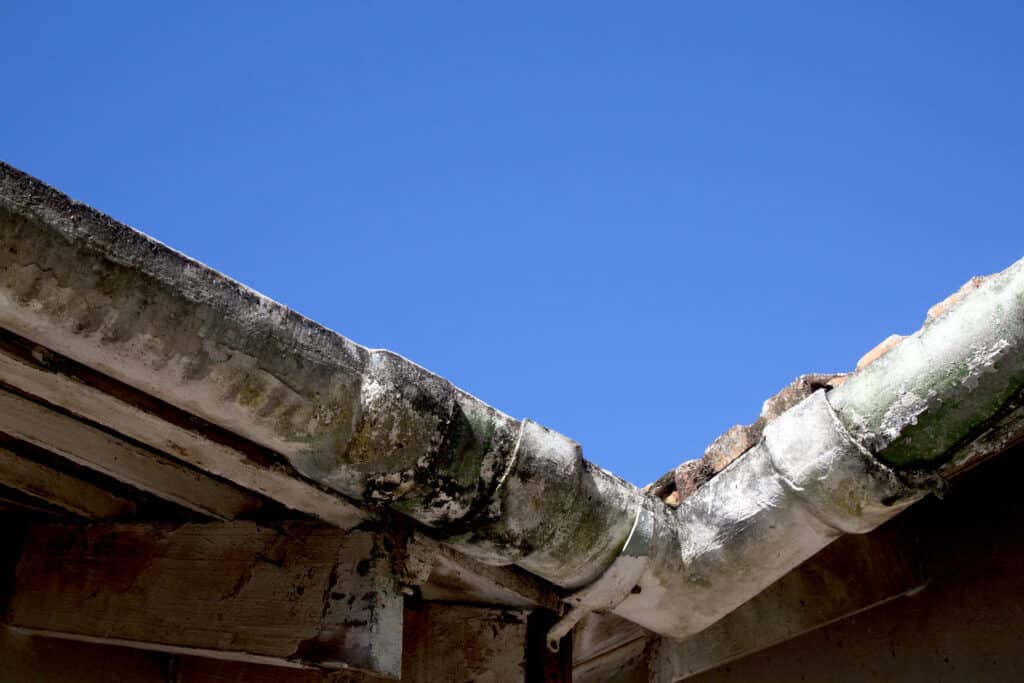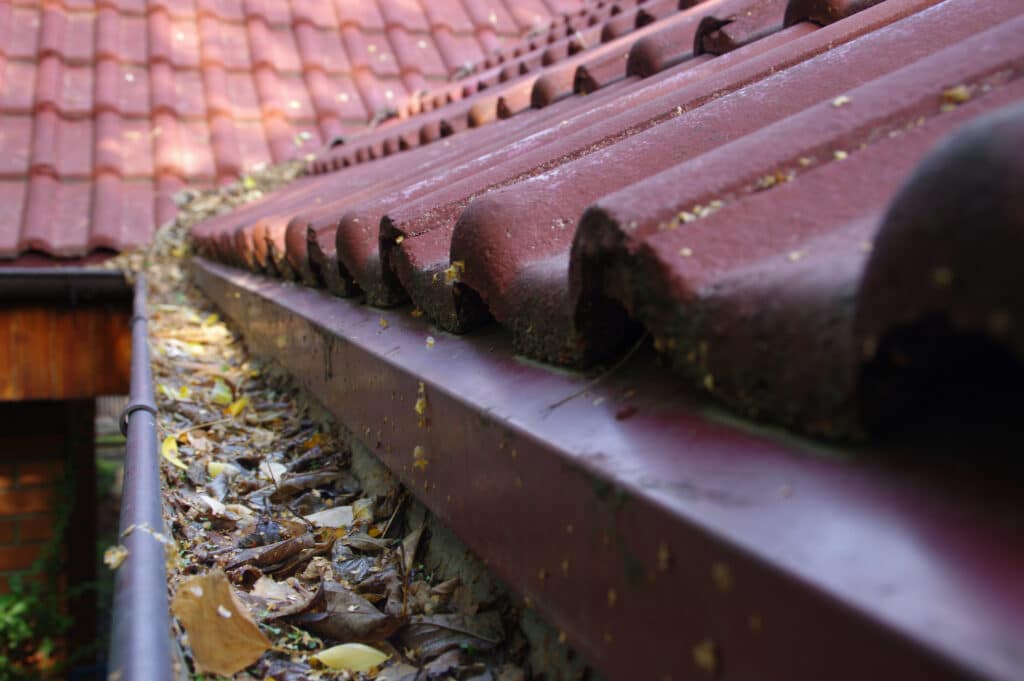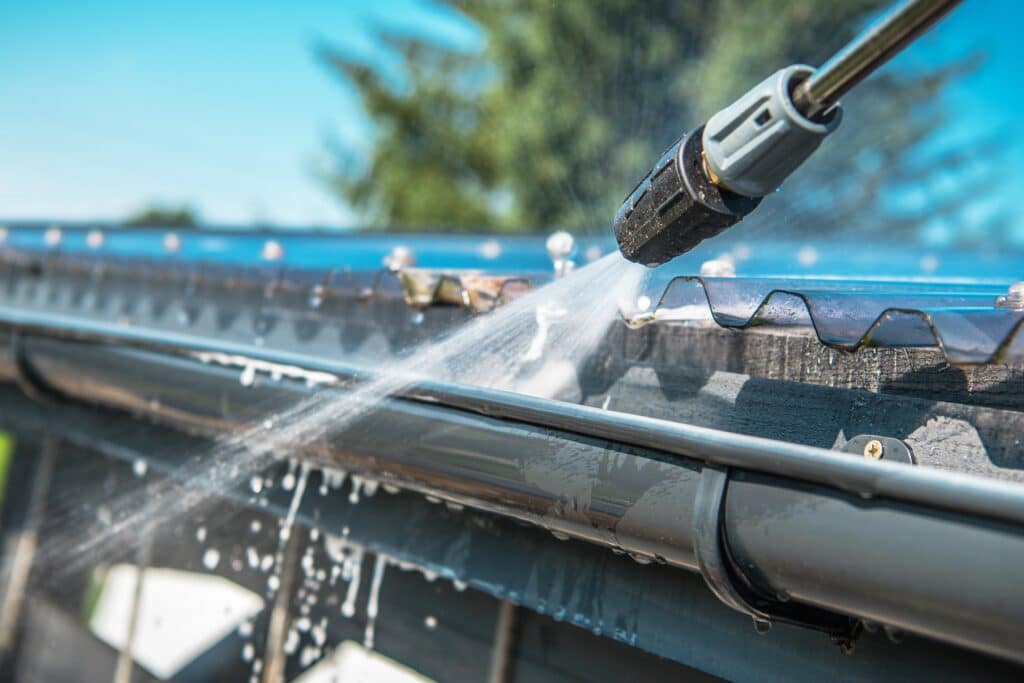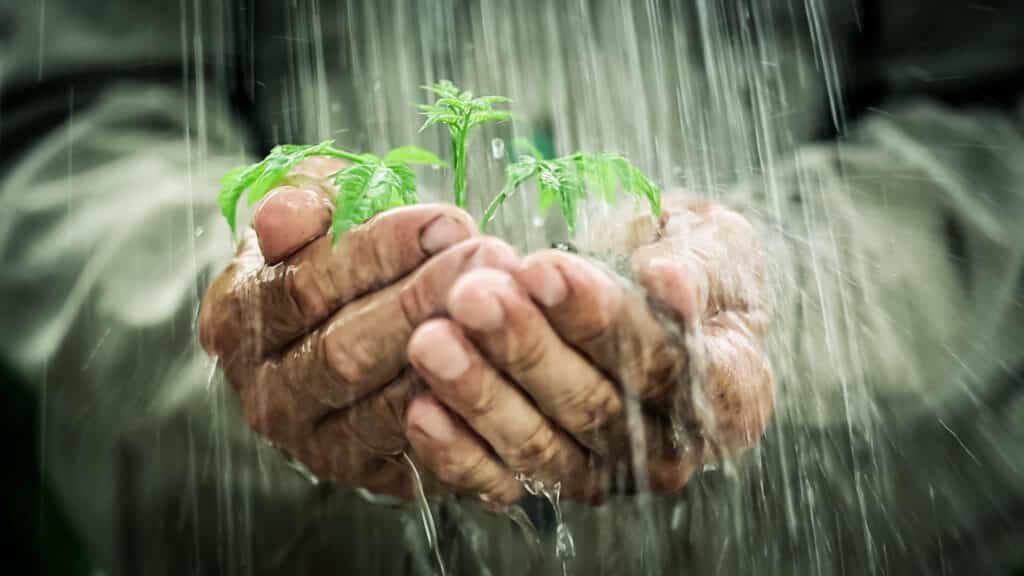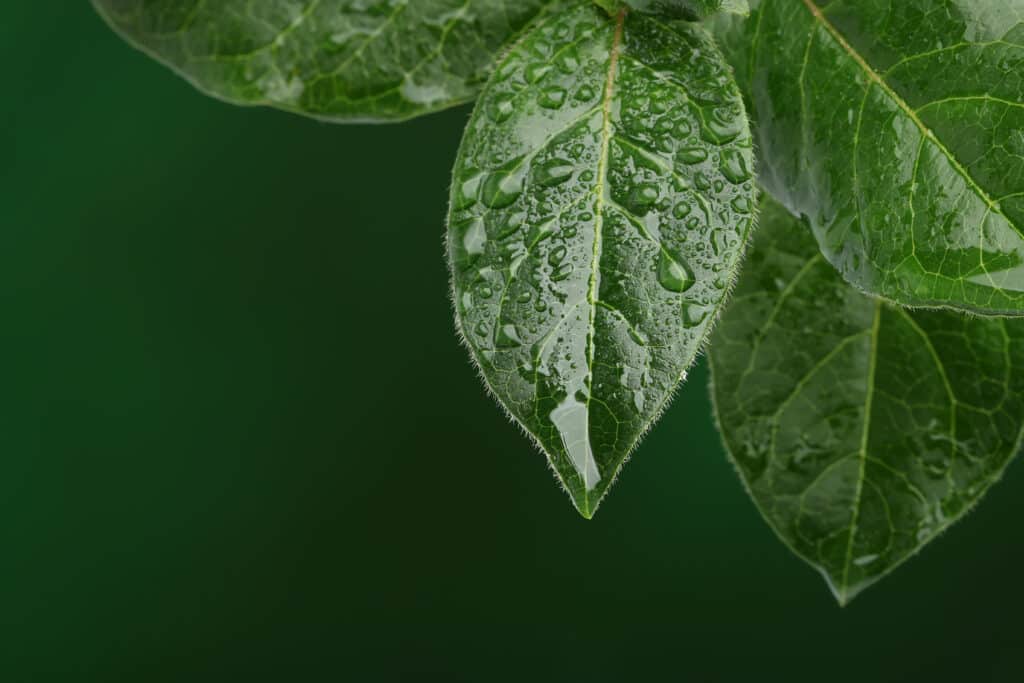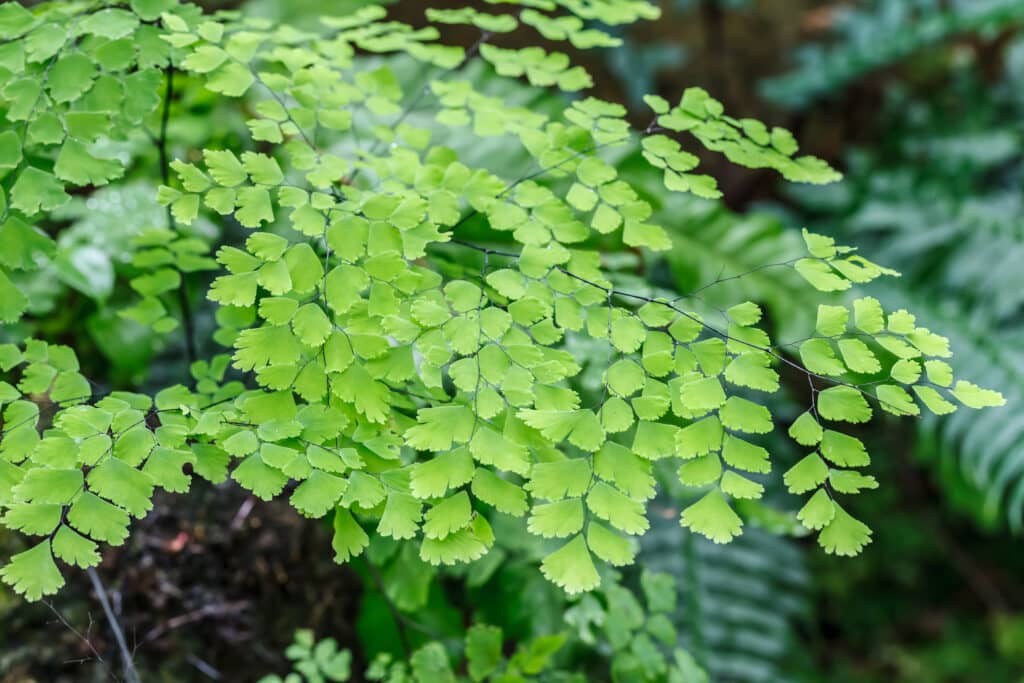Owning a business is exciting and challenging. If you are a business owner, you have first-hand knowledge of how difficult it can be to keep everything running smoothly. One critical component of that fight is maintaining a clean commercial property. There is simply no substitute to commercial pressure washing when it comes to making a business really sparkle. In fact, there is also no way to measure just how much regular cleaning can really help a business thrive, but we’ll try to narrow it down to five major advantages.
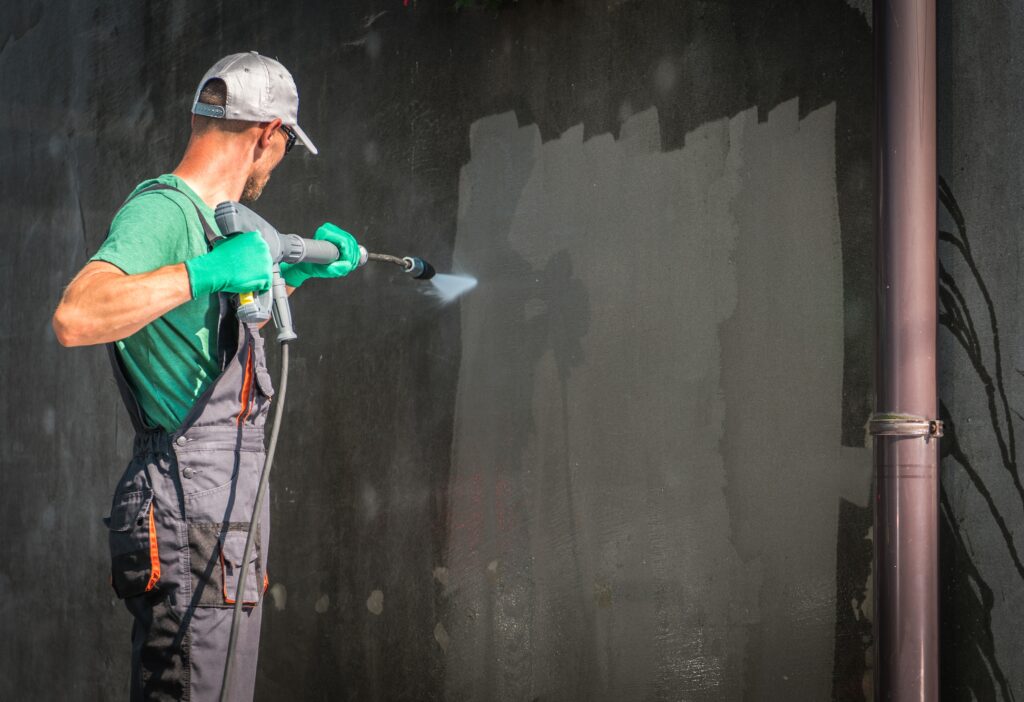
Make a Good First Impression
People are well understood to make judgment calls based on appearance. It’s how our brains are wired. We are drawn to beauty and repelled by unattractiveness. If you want your business to really stand out, regular commercial pressure washing should be a high priority. Having a clean exterior is the only way to make a good first impression to casual bystanders or serious shoppers on the street.
Good commercial pressure washing does not simply include your property’s walls. It also includes the pavements, driveways, and other concrete which belongs to your business. Soft washing is a better choice for roofs, and a professional pressure washing team can offer that service. If you prioritize these processes, you will gift your property with a better appearance and a sense of professionalism and care that will instill confidence and trust in potential and long-standing customers.
Picture Perfect
In this, the Information Age, many if not most of your customers likely come from sources other than seeing your business on the street. In all probability, most of your customers come to you from the internet, and that means you have to give a good impression there too. Before you have pictures taken of your property for your website or social media accounts, we highly recommend giving it a thorough commercial pressure wash. This will allow you to put your best foot forward online, generating more business from a wider audience.
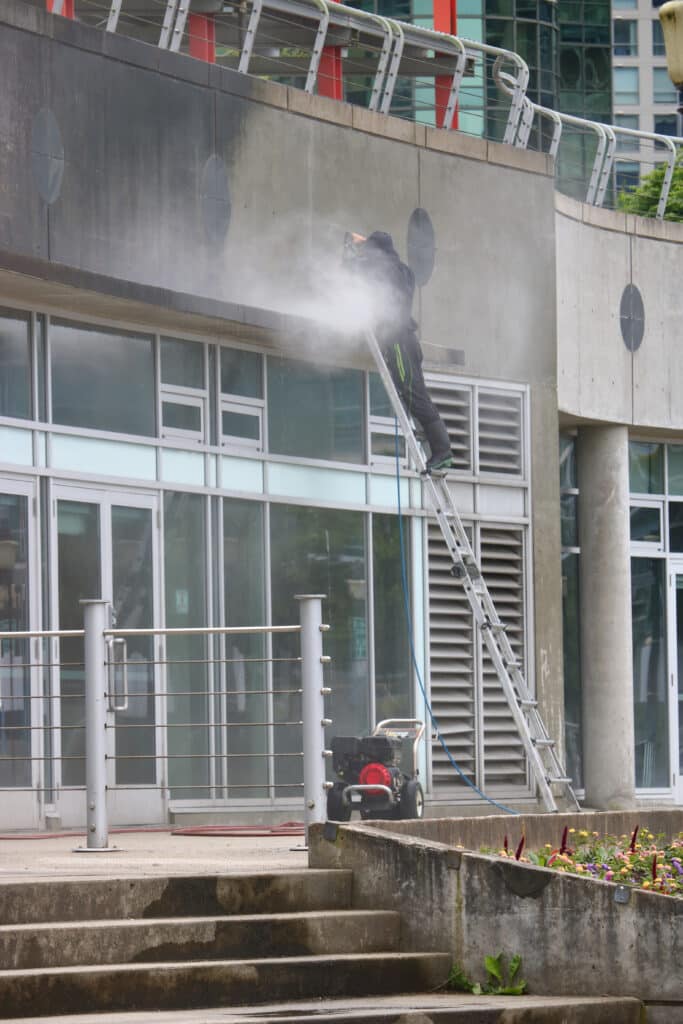
A Healthy Dose of Safety
What many people do not realize is that the benefits of a deep commercial pressure wash include far more than just a pretty exterior at surface level. Exterior surfaces are filthy, exposed constantly as they are to dirt, air pollution, pollen and other allergens, bacteria, mildew, and mold. These can build up on the surface of your commercial property, where they expose your patrons and employees to all kinds of health risks. By cleaning your commercial property regularly, you limit the risk of allergies, infections, and other health challenges.
Spend Less On Repairs
Repairing damage caused by bacteria, mold, chemicals, mildew, or other grime can be very expensive. If you clean all of those threats away, you don’t have to worry about damages and repairs at all. In this way, regular commercial pressure washing can save you a lot of money in repairs, replacements, and remodels. Take care of it early, before damage can accrue.
Prolong Your Investment
A business is an investment, and if the marketing campaigns and sales strategies you employ operate to protect investment, so too should your building. Regular commercial pressure washing helps keep commercial properties up to date and functioning properly. It can improve the functionality of your plumbing, heating and air systems, roof, and driveways and parking lots. By extending the lifetime of your property, you save money fixing the problems that arise from uncleanliness.
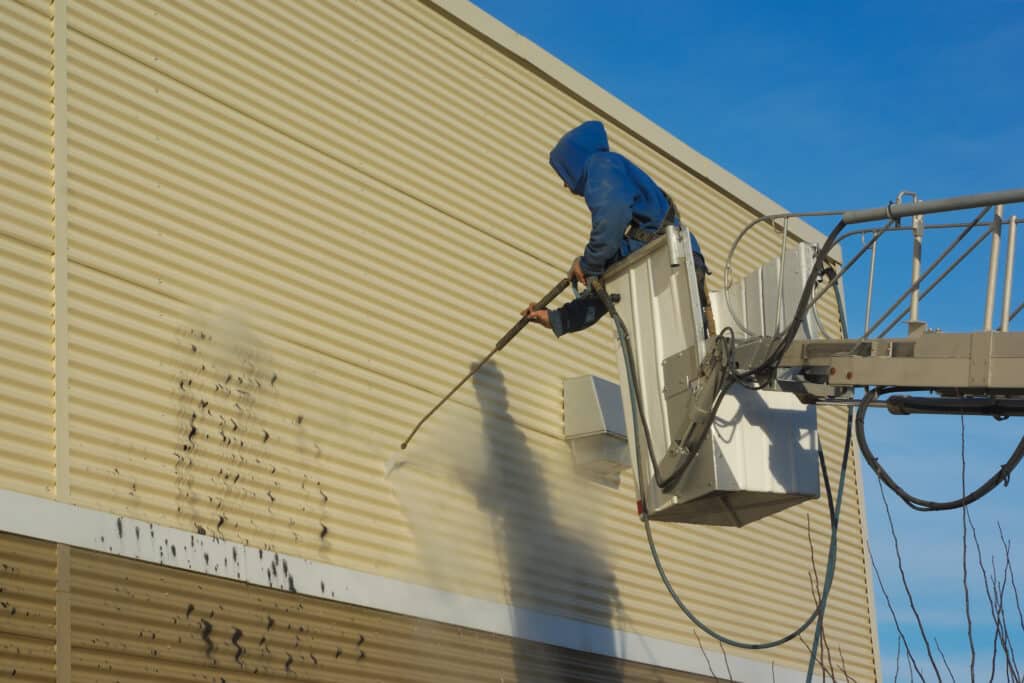
Commercial Pressure Washing from the Professionals
As mentioned above, we know that the demands on your time as a property owner are numerous. You’ve got a lot on your plate without adding cleaning the building to it. That’s where leaving the task to the professionals comes in. entrusting the cleaning of your commercial property to a team like Westchester Power Wash is the best way to take a load off your mind.
In addition to saving you time and energy, entrusting your commercial pressure washing to the professionals is infinitely safer. For all their perks, pressure washers can be dangerous to operate and can even cause damage when not handled correctly. A professional team minimizes those risks because of the years of training and experience they possess. A professional company will also be insured against any mishap.
At Westchester Power Wash, we promise New York residents the best commercial exterior cleaning services on the market. We will leave your roof, walls, and concrete sparkling clean so it will last longer and provide you with the best advantages available.
If you are interested in learning more about our commercial pressure washing services or you would like to schedule with us, contact us today.

